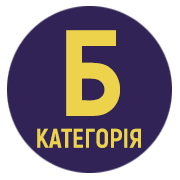VOCAL TRAINING OF HIGHER EDUCATION STUDENTS: REGIONAL SPECIFICITY AND DYNAMICS
Abstract
The article is devoted to the consideration of regional peculiarities of formation and development of vocal education as a component of professional training of future specialists in music performance and music pedagogy. The use of source, historical, cultural, analytical, and comparative research methods allowed us to highlight the organisational and methodological foundations of teaching vocal teachers in higher education institutions of Rivne. The influence of the Lviv vocal school on the formation of the system of singing education at the Rivne Pedagogical Institute and the Rivne Institute of Culture is revealed. The contribution of the representatives of the traditions of Galician vocal pedagogy N. Safronova and K. Masliy to the music education and concert and performance practice of Rivne region in the second half of the twentieth century is evaluated. The article identifies modern vectors of vocal training of higher education students at the Institute of Arts of Rivne State University of the Humanities as a reflection of the realities of musical art development. At present, educational and professional programmes are being implemented to ensure that students master the techniques of academic, folk, and pop vocals. The emphasis is placed on updating the content and forms of singing teaching in the context of the dynamics of socio-cultural changes in Ukraine. The article emphasises the universalisation of modern vocal performance, which encourages teachers to use innovative methods of comprehensive development of the singing voice of a creative personality in teaching singing. The professionalisation of vocal art in Rivne region is facilitated by the International Festival-Competition "Amber Solo Singing", which creates opportunities for the exchange of scientific and methodological experience of teachers and improvement of the performing skills of young singers.
References
Данканич Г. (2014). Зіставлення явища культурної міграції та збереження зв’язків із вітчизняним мистецтвом (на прикладі педагогічної діяльності професора Надії Сафронової). Наукові записки Тернопільського національного педагогічного університету ім. Володимира Гнатюка. Серія «Мистецтвознавство», 3, 145–151.
Кавунник О. (2014). Ніжинська вокальна школа: віхи розвитку та представники. Вісник НАКККіМ, 2, 184–190.
Маслій К. (1996). Виховання голосу співака: навчальний посібник. Рівне: ЛІСТА. 120.
Мустафаєв Ф. (2019). Історичні аспекти розвитку української вокально-педагогічної школи у ХХ – на початку ХХІ століття. Мистецтвознавчі записки, 36, 167–172.
Омелянчук І. (2023). «Бурштинові солоспіви» звучали і в Жешуві. Урядовий кур’єр. 16 серпня. https://ukurier.gov.ua/uk.
Рівненський державний гуманітарний університет. Освітні програми. https://rshu.edu.ua/navchannia/osvitniprohramy.
Скворцова О. (2022). Мистецтво академічного вокалу в сучасному науковому та педагогічно-методичному дискурсах. Актуальні питання гуманітарних наук, 52, т. 3, 67–72.
Фарина Н.П. (2022). Номінація «естрадний вокал» у конкурсних змаганнях: матеріали I Всеукр. наук.-практ. конф. 1 грудня 2022 р. Івано-Франківськ: УКД, 209–212.





